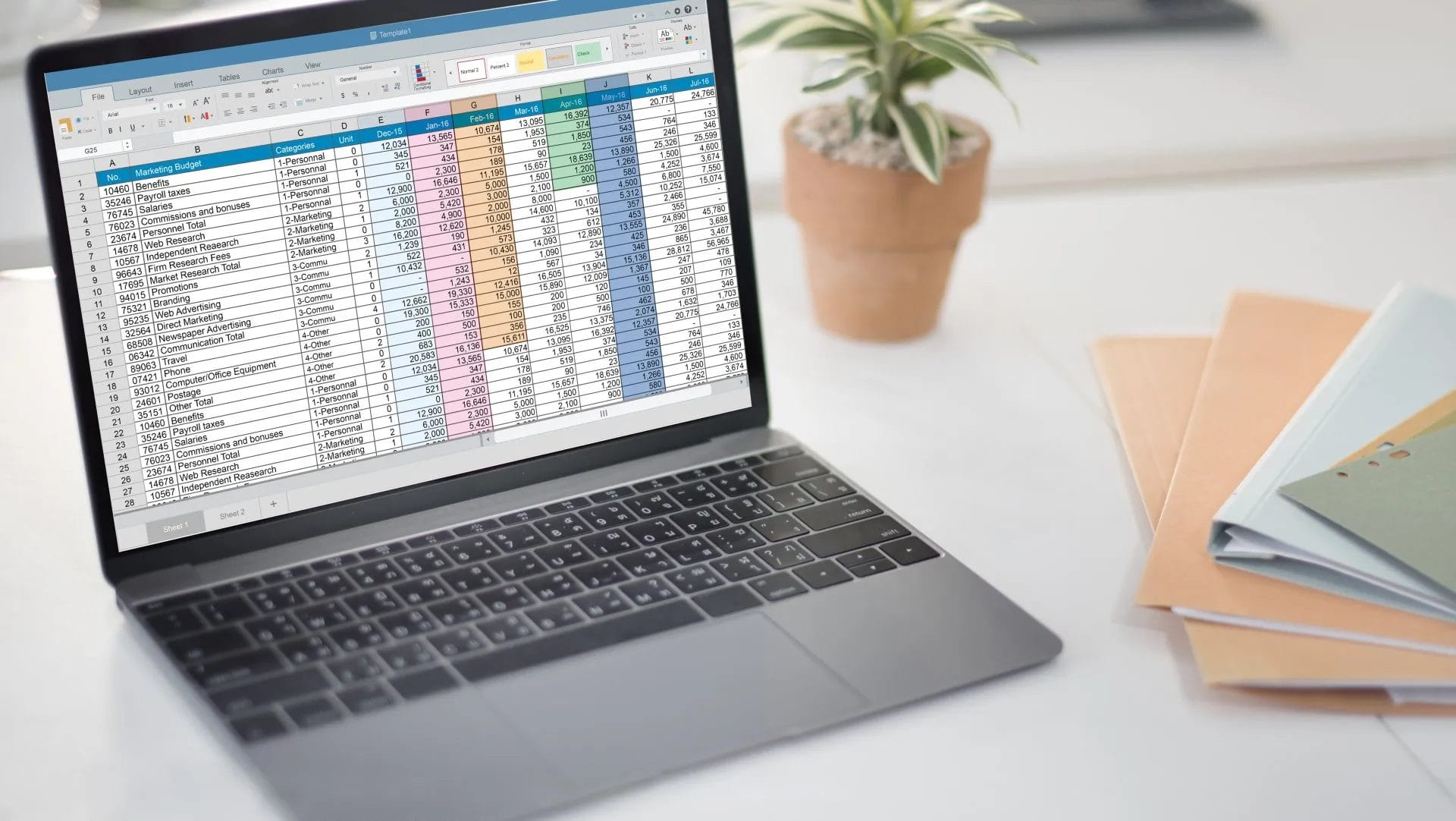Microsoft Excel is the bookkeeping software of choice for many small businesses. This is especially true for small business entrepreneurs and start ups. It’s been around for a long time, with many, many Excel templates online, and sample accounting formulae readily available. Even better, you most likely already have it installed on your laptop. It’s the most accessible bookkeeping worksheet available when you initially start your firm.
However, when your company grows, you’ll quickly find you don’t have time to cope with the manual effort necessary to keep Excel up to date. You’ll soon have to make a business decision: do you devote time and effort to MS Excel and the hazards that come with it? Should you enter all of your company’s financial data into accounting software or not? You want to keep costs down, but in the long run, will you actually be spending more due to the time needed to use excel?
For small business owners, Excel is a good place to start. It’s difficult to miss the free Excel versions’ access to customisable, basic spreadsheets. Owners, on the other hand, will quickly uncover a slew of issues, including the possibility of faulty calculations, missing data, and lost files. And the more time you spend on a spreadsheet, the more difficult it will be to maintain your records in order, leaving you with less time to focus on your business.
Below are just 8 reasons why using Excel exclusively for expense management is no longer feasible.
1. Input by hand
The sticker price of a product like Excel has nothing to do with its cost. It all comes down to how much time it takes to handle. Unfortunately, Excel necessitates a significant amount of time. Every company cost must be manually entered. Every transaction must be entered twice if you use double-entry accounting, as mandated by the Generally Accepted Accounting Principles. That’s twice as much data entering by hand.
Everything from expenditure reports to the chart of accounts must be entered manually. This not only takes time, but it also raises the danger of making a mistake. What does this mean in terms of cost for small businesses?
Assume you have a part-time employee who completes financial tasks. The employee works 20 hours each week since they have to manually enter data into Excel. Assume that the employee is paid £12 per hour and works 50 weeks per year.
In this scenario, you’re allocating £12,000 only to accounting data entry. This is not only exorbitant, but it also ignores the lost opportunity costs of not being able to spend that time on sales, marketing, or hiring.
2. A scarcity of historical information
Another problem with Excel accounting spreadsheets is that they don’t do a good job of storing historical data. Companies frequently lose historical data, making it harder to spot financial patterns. Companies can plan and budget better if they can spot financial patterns.
Do you, for example, see a spike in sales in December? If that’s the case, you could need to employ seasonal labour or increase your supply. You may miss out on chances or lose money if you are unable to recognise trends.
This is not only aggravating, but it may also result in legal issues. Imagine being called for an IRS audit only to discover that the information from the relevant year is missing from your company’s spreadsheet template. That is an issue.
3. Visualization is a challenge
The Excel format is useful for big volumes of data, as described in the preceding paragraph. However, when it comes to understanding the data, it’s not very useful. In fact, Excel interprets data using visualisation tools such as tables and graphs.
While this may be beneficial in some sectors, it is not applicable to commercial accounting. Assume you own a business with a £1 million annual sales. Trying to keep track of transactions in categories like accounts receivable or accounts payable may be difficult, especially when dealing with large amounts of data. Unlike accounting software, you can’t enlarge or compress an Excel table.
4. It is not widely recognised in the corporate sector
While Excel may work for your little firm, it is rarely accepted by the rest of the business world. It’s possible that investors will be put off by your use of it. Your accountant or bookkeeper will, too.
Data analysts who crunch figures and perform pivot tables may find Excel beneficial. However, business owners who are concerned with tracking business transactions in the general ledger and preparing financial statements such as balance sheets, income statements, and cash flow statements will run into issues with the software at some point.
With better tools, the number of hours spent on accounting lowers, lowering the time-value cost.
5. There is no integration
Excel does not interact effectively with your other financial apps, such as credit cards and bank accounts, which is similar to the fact that it involves a lot of manual effort.
You may be able to get your statements in spreadsheet format from your credit card and bank firms, but you’ll still need to input and organise all of this information into your existing accounting spreadsheet. This, too, takes a long time and puts you at risk.
If you make a mistake when inputting data, it might take hours or days to figure out what went wrong. Having your transactions automatically imported into your accounting software decreases the chances of this happening.
6. You’ll end up with two spreadsheets that aren’t in sync
Inconsistent spreadsheets are one of Excel’s most difficult problems to spot until it’s too late.
This happens on a regular basis. You must manually input and alter data in various locations since Excel isn’t a central hub for all your accounting, budgeting, and inventory needs. This is a problem that affects businesses of all sizes. However, the larger an organisation becomes, the more likely it is to be exposed to it. According to Ventana Research, roughly 44% of enterprise-sized firms have spreadsheets that are inconsistent.
The main issue with statistics that don’t add up is that it’s difficult to find out why they don’t. While two spreadsheets can be reconciled, if a mistake was made a few months earlier, it’s a real pain to sort out.
7. Spreadsheets aren’t designed to scale
When you’re initially starting out, Excel can be a good option. However, when your business expands, you may need to adjust your rates, raise capital, launch a few new goods, or recruit a few additional employees. Your spreadsheet may soon be unable to keep up with your company’s finances.
8. Small mistakes compound
Errors in spreadsheets have a cascade effect. If even one cell in your spreadsheet is incorrect, it might have far-reaching consequences. If you enter an inaccurate digit or a missed comma or decimal point in one field, your spreadsheet will utilise it to perform subsequent calculations incorrectly.
There are many aspects of business that you have no influence over. Expense management is not one of them. With the right tools and management it can become a stress free and easy process, which can lead you to insights you never would have been able to have before.
Capture Expense eliminates these issues
With our very competitively priced software, you can save money, time, and gain control over your money management. Uploading and keeping track of expenses becomes easy and efficient with both our desktop and mobile app. Contact us today for more information, and take your business to the next level.

